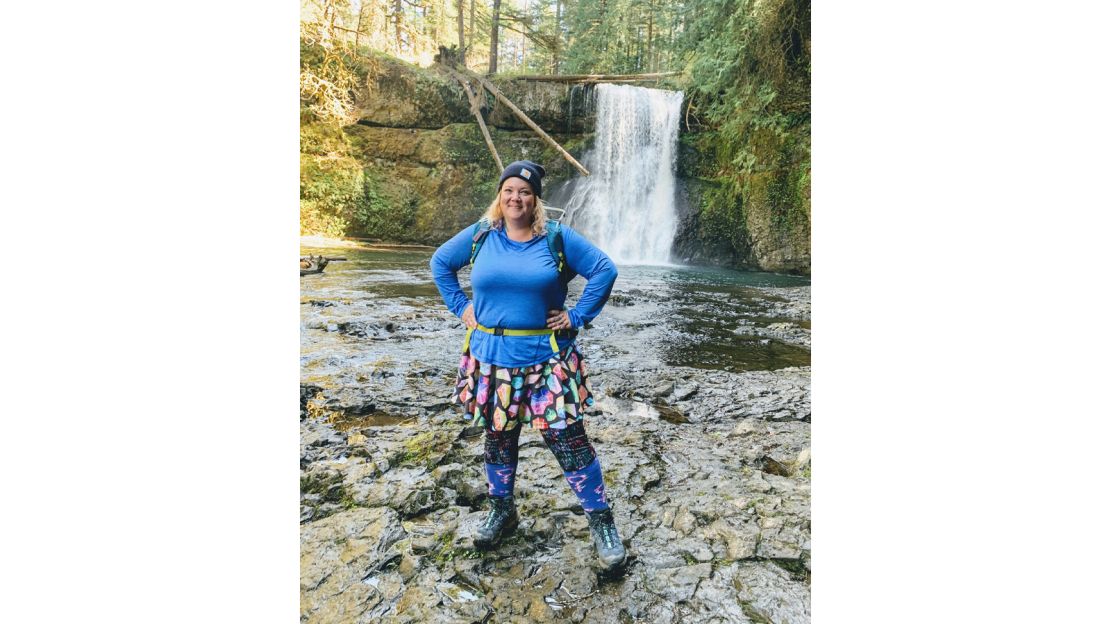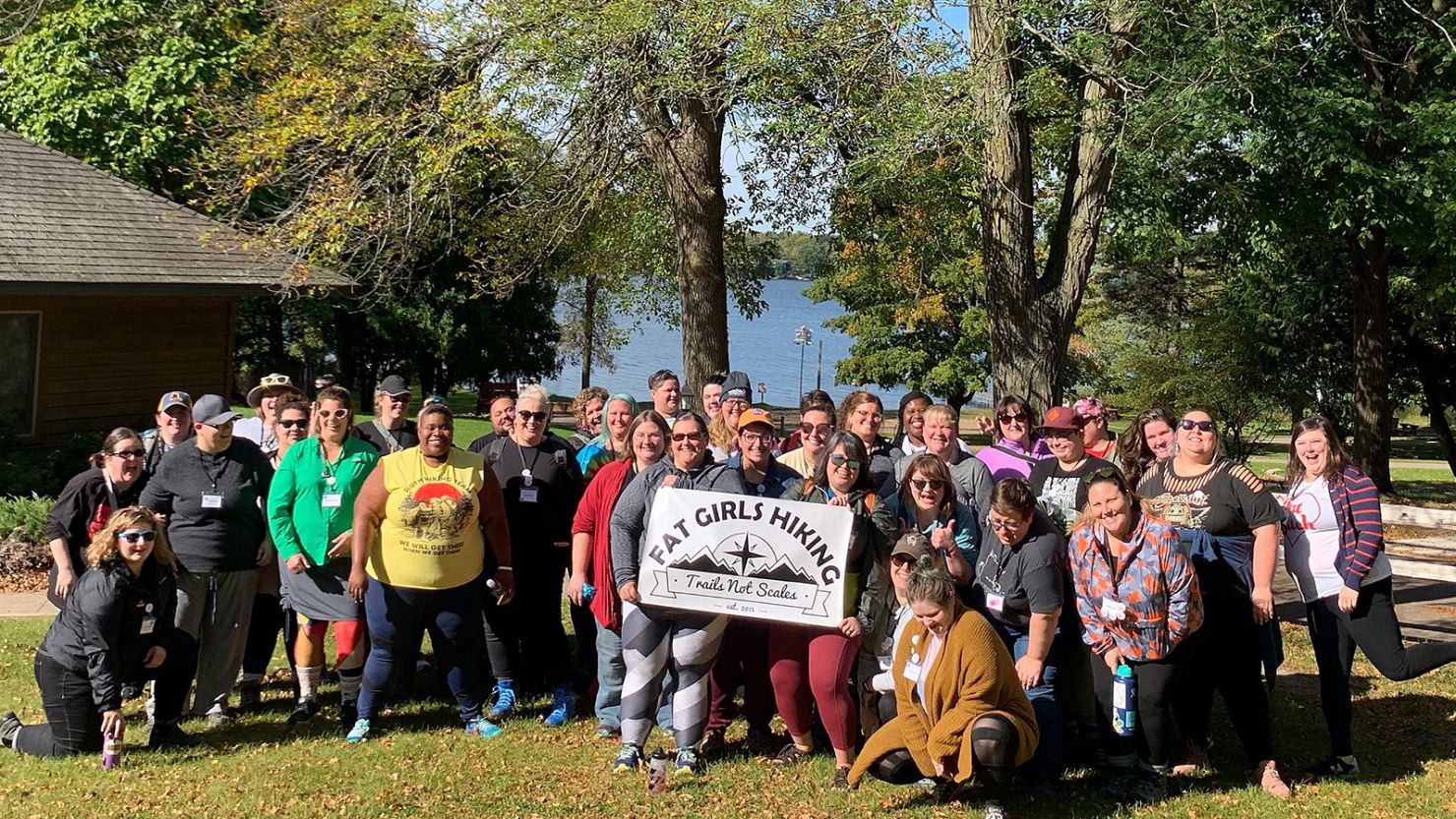Editor’s Note: Monthly Ticket is a CNN Travel series that spotlights some of the most fascinating topics in the travel world. In July, we’re hitting the trails to explore the world’s greatest hikes.
In 2016, Playboy Playmate Dani Mathers was at a Los Angeles gym when she Snapchatted a picture in the locker room, of herself pointing and laughing at an older woman. Mathers shared a photo of the woman’s naked body with the caption “If I can’t unsee this then you can’t either.”
The reaction was swift and furious. Mathers’ story went viral, and the term “body shaming” entered America’s national lexicon. Mathers was banned for life from the gym and convicted of a misdemeanor charge of invasion of privacy.
Still, though, many people saw themselves as the woman in the locker room getting made fun of.
Summer Michaud-Skog was one of them.
“As I was jogging (one day), some dude said, ‘Well, you could really feel the earth move when she went by,’ because I’m fat,” she recalls.
That’s the great irony: people who have larger bodies are constantly told they should exercise, but then get made fun of when they do. And while there are many clubs and organizations for hikers, bikers, climbers and other people interested in physical activity, Michaud-Skog saw how intimidating they could be for people like her.
That’s how Michaud-Skog, a writer and photographer, also became the founder of Fat Girls Hiking, a body-positive group that encourages women of all shapes and sizes to enjoy the outdoors without judgment.
It wasn’t the path she expected to take. In fact, Minnesota-raised Michaud-Skog used to hate outdoorsy activities so much that her then-girlfriend would have to trick her into hiking by pretending to drive to one place and then pulling up at a trailhead instead.
“I think I really just had this idea that hiking had to be done in a certain way … I didn’t know I could just go at my own pace, and I could just take my time. I didn’t know that I didn’t have to finish a hike, that I could just go as far as I wanted.”
While working as a nanny, Michaud-Skog started taking her child charges on outdoor activities. Then she went on solo hikes with her dog. Hiking began to transform from something she did to make other people happy into something that gave her peace and calm.
She also became more interested in nature, learning the names of different trees, flowers, plants and birds she would see along the way.

Within a few years, the girl who grumbled about how much she hated hiking was so keen on the outdoors that she moved permanently into a van in rural Oregon. And she uses her online platform to bring other women outside with her.
Fat Girls Hiking began as Michaud-Skog’s personal Instagram account. But once she built up a following, different members – called ambassadors – started chapters of their own in the United States, Canada, and the UK, all with her blessing. (Some of these chapters closed down or became less active during the pandemic, but she is always accepting applications for new ambassadors.)
Members organized group hikes, so that women wouldn’t have to feel self conscious hiking on their own and so that they could meet other women in their own communities who shared their interests.
The cliche about there being strength in numbers also proved true when it came to harassment, whether online or in person.
“As [Fat Girls Hiking] grew into being a community, I realized that it was something that I really actually needed for myself to have representation, and to just have other people who sort of understood what it was like to be a marginalized person who’s in these outdoor spaces,” she says.
It’s important to Michaud-Skog to enjoy the outdoors for its own sake, not as a tool for weight loss.
Fat Girls Hiking has a firm rule about no dieting talk or unsolicited advice in its groups. “We’re really centering joy, and connection, and community, and healing, and all the things that the outdoors have to offer us, instead of focusing on what our bodies look like,” Michaud-Skog explains.
She also notes that inclusivity is about more than body size, despite the group’s name. Fat Girls Hiking groups make an effort to include non-binary people, trans women, people of color, and people with disabilities.
“There’s no wrong way to hike,” Michaud-Skog says. And she has a whole lot of people who agree with her.
Top image: A group hike in Minnesota. Credit: Summer Michaud-Skog




